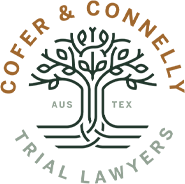Divorce becomes even more challenging when a family business is at stake. Untangling personal and professional ties requires a deep understanding of both family law and business dynamics. Protecting your interests demands a strategic approach to preserve what you've worked hard to build. With the right guidance, you can safeguard your future and the legacy of your business.
Understanding the Intersection of Divorce and Family Business Ownership
Legal Implications of Divorce on Business Ownership
When divorce enters the picture for family business owners, the legal ramifications can be as complex as they are significant. Divorce doesn't just deal with the personal aspects of life; it's a legal process that can impact business ownership significantly. One major aspect is the division of assets, where a business may be considered a marital asset. Depending on the jurisdiction, the court might decide how the business will be divided between the parties. This can lead to potential disputes over who will control the business, and such conflicts often require deep dives into family and business law. It's crucial for business owners to stay informed on how their local jurisdiction interprets these laws and the potential consequences on their business ventures. Family law attorneys proficient in business matters can offer invaluable guidance here, helping parties understand their options and possible outcomes.
Valuation of Family Business in Divorce
The valuation of a family business during divorce proceedings is an intricate and essential process. Getting an accurate valuation can significantly influence the settlement and, by extension, the future success of the business. Various approaches to valuation exist, including the market, income, and asset-based methods, each having its advantages and challenges. The market approach compares the business to similar recently sold enterprises, while the income-based approach looks at the future earnings potential. The asset-based method, on the other hand, evaluates the business based on the sum of its parts—assets versus liabilities. Choosing the right method often requires expert insight to ensure a fair and comprehensive evaluation. A thorough understanding and application of these methods can favorably shift the financial dynamics during divorce negotiations, influencing the equitable distribution of the business asset.
Navigating Financial Implications and Settlements
Equitable Distribution vs. Community Property States
The approach to dividing assets, including business assets, can vary dramatically depending on whether you're in an equitable distribution state or a community property state. In an equitable distribution state, the aim is fair division, which doesn't invariably mean equal. The court considers several factors, including the length of the marriage, the financial situation of each party, and contributions to marital property, to decide on the division. Conversely, community property states, like Texas, treat all property earned or acquired during the marriage as equally belonging to both parties. This distinction directly affects business owners, as it may affect the retention or division of business assets. Understanding these differences can significantly alter how business valuations impact divorce settlements.
Evaluating Cash Flow and Ownership Interest
Understanding and managing cash flow from the family business becomes crucial when navigating the financial implications of divorce. It's vital to maintain clear documentation of business finances to facilitate a fair assessment of ownership interest. During settlements, the court may examine how the business's income stream will affect the financial stability of both parties. There may be negotiations over how ownership interest can be reallocated or whether it is in the best interest of both parties to maintain joint ownership. Sometimes, one party may buy out the other's interest, enabling one spouse to retain control of the business while compensating the other. Negotiating these settlements requires a deft approach to ensure that the business continues to thrive while meeting the legal and financial needs of the parties involved.
Managing Business Operations During Divorce
Maintaining Business Continuity
Maintaining smooth business operations during divorce proceedings is a priority for owners, as disruptions can have long-term impacts. Ensuring business continuity involves strategic planning and, often, clear communication among stakeholders. Key employees and co-owners must be aware of their roles and responsibilities to mitigate the impact of any personal conflict spilling into professional spaces. Implementing a structured continuity plan focusing on short-term instability and long-term operational health is essential. In Austin communities, business owners might find it beneficial to engage with local networks to facilitate support during this turbulent period, ensuring that the business remains a priority for all involved.
Decision-Making Amidst Disputes
Divorce can add a layer of complexity to decision-making processes in businesses, especially when both parties hold positions of power. To manage conflicts effectively, implementing structured mediation or employing neutral third parties for decision-making can be advantageous. Such tactics help maintain objectivity and focus on the business's best interests rather than personal disputes. Consider opting for alternative dispute resolution methods such as arbitration or mediation to address disagreements constructively. Bringing impartial advisors may also help navigate the complexities of joint decision-making, allowing both parties to reach amicable agreements without hampering business success.
Preventive Measures and Long-Term Considerations
Drafting Business Ownership Agreements
Proactively drafting comprehensive business ownership agreements can be a saving grace in the event of a divorce. Such agreements not only outline the roles and responsibilities of each party but also prepare for potential divorce-related scenarios. They might include clauses stipulating how assets should be divided or outline buyout arrangements should one party wish to exit the business. Regularly updating these documents is equally vital to reflect any changes in business structure or personal relationships. For businesses in Austin, these agreements must comply with Texas law while mapping out feasible strategies to protect the enterprise from unnecessary disruption.
Incorporating Exit Strategies in Business Planning
A business planning session that overlooks exit strategies—particularly divorce-related—is incomplete. Integrating these strategies into everyday business plans helps safeguard interests and can preemptively address potential divorce-related issues long before they arise. This may involve establishing specific protocols for the valuation and sale of shares or assets, outlining how disputes will be resolved, and determining the roles each partner may assume post-divorce. Incorporating such details within the business plans fortifies the company against foreseeable issues, ensuring it's fully equipped to sustain operation continuity regardless of personal disruptions among its management.
Expert Guidance and Support Systems
Emotional and Psychological Support for Business Owners
The emotional toll of divorce, compounded by business pressures, can be overwhelming. Business owners must recognize the importance of seeking emotional and psychological support during challenging times. Engaging with personal counselors or being part of support groups can provide the outlet to manage stress and maintain clarity in decision-making. Each phase of the divorce process demands energy and focus, and fortifying mental health with appropriate support systems ensures that business owners can sustain their personal well-being without compromising professional responsibilities and efficacy. Structured emotional support helps keep business objectives in sight despite the personal upheaval divorce may cause.
Consulting with Legal and Financial Experts
Facing the intertwined challenges of business ownership and divorce demands insight beyond ordinary circumstances. It's imperative that business owners seek guidance from legal and financial experts to navigate these complex terrains effectively. Consulting with seasoned divorce attorneys who understand the nuances of both family and business law, forensic accountants capable of dissecting complicated financial situations, and business valuation experts who can provide a fair market assessment are crucial steps. In Austin, enlisting professionals familiar with state-specific laws and regulations helps create a comprehensive support system, ensuring business owners are well-prepared to strategize effectively and protect their interests throughout the divorce process.
Austin Complex Divorce Attorneys
Are you facing the complexities of divorce while managing a family business in Austin, TX? It's crucial to have knowledgeable legal and financial support to navigate these waters confidently. At Cofer & Connelly, PLLC, we specialize in family law and understand the unique challenges you face. Our experienced team is here to help you understand your options and fully protect your business interests. Contact us today at (512) 991-0576 to find out how we can assist you with personalized solutions tailored to your situation.






